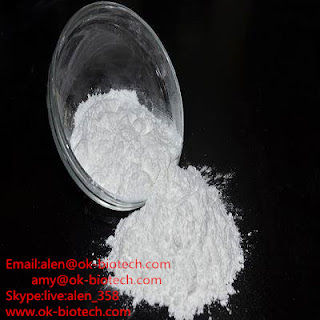Clashes With Kurdish Militants Kill 18 In Southeast Turkey
Clashes With Kurdish Militants Kill 18 In Southeast Turkey
Edit: Shenzhen OK Biotech Technology Co,.Ltd Date: 2015-11-05
www.ok-biotech.com

Clashes with Kurdish militants kill 18 in southeast Turkey
People react as smoke billows from burning pallets set on fire during clashes between Turkish riot policemen and Kurdish protesters in the southeastern city of Diyarbakir on November 1, 2015 after first results of the Turkish general election showed a clear victory to the Justice and Development Party (AKP).
ANKARA: Eighteen people were killed in clashes in southeast Turkey Wednesday, a day after the military launched air strikes there, as violence continued to rock the mainly Kurdish region days after a parliamentary election.
Two soldiers and 15 Kurdistan Workers Party (PKK) militants were killed fighting near the village of Daglica by the Iraqi border, which the military had targeted with air strikes the day before, the General Staff said on its website.
Turkish jets also pounded PKK targets in northern Iraq on Tuesday for a second day, the military also said.
The West has voiced deep concerns about Sunday’s vote that delivered Erdogan’s Justice and Development Party (AK Party) a landslide victory, fearing the country will slide into increasingly authoritarian rule.
Hopes of a possible return to Kurdish peace talks after the vote were dashed after the military said its warplanes bombed bases of the outlawed Kurdistan Workers’ Party (PKK) in southeastern Turkey and their northern Iraq stronghold Monday.
“Shelters, caves and arms depots identified as being used by terrorists from the separatist terrorist organization were destroyed with air bombardments,” it said in a statement.
Three Kurdish rebels also died Tuesday after clashes erupted with security forces in two areas of the southeast, the first reported deaths in PKK ranks since the election.
Analysts say anxiety over the resurgent Kurdish conflict and a spate of bloody attacks by ISIS were key reasons why voters flocked back to the AK Party.
In a turnaround that confounded pollsters, Erdogan’s Islamic-rooted AK Party reclaimed the majority it lost five months ago, winning almost half the votes and returning the Muslim-majority state of 78 million to single-party rule.
And events in Turkey appear to bear out grim predictions that the “Sultan” who has dominated politics for more than a decade will brook no dissent as he seeks to expand his presidential powers.
Prosecutors Tuesday charged two journalists over a magazine cover critical of Erdogan, while police rounded up dozens of supporters of a U.S.-based preacher now regarded as the president’s nemesis.
The left-wing Nokta magazine said on Twitter its editor-in-chief Cevheri Guven and managing editor Murat Capan had been arrested and charged with “attempting to overthrow the government by force.”
Police had raided its Istanbul offices Monday after the election edition of the magazine hit the streets with a front cover declaring “The start of civil war in Turkey.”
Police also detained 44 suspects including high-ranking bureaucrats and police as part of a “terrorism” investigation into exiled lay preacher Fetullah Gulen.
Gulen is charged with running a “parallel state” which launched a widespread corruption probe into the president’s inner circle in 2013 that tarnished Erdogan and his party, whose initials AK mean “pure” in Turkish.
Three former provincial governors and an ex-deputy police chief were among those held.
The action came only a day after the United States and two European observer missions expressed concern about media intimidation during the election campaign.
Ankara denied there was any pressure on the media, despite a string of high-profile arrests and raids on opposition TV stations that raised alarm in the run-up to the vote.
“Nobody is forced to be silent in this country,” deputy premier Akdogan said, but added: “Press morality goes hand in hand with press freedom.”
Despite constant concerns about human rights that have hampered Turkey’s EU aspirations, analysts say the bloc will have no choice but to deal with Erdogan.
EU President Donald Tusk even congratulated Prime Minister Ahmet Davutoglu on his election win Tuesday while urging Turkey to show its readiness to work with Brussels on issues such as the migrant crisis.
Brussels has voiced worries over deteriorating security linked to the war in Syria, which has seen 2 million refugees take shelter in Turkey.
Tusk also urged Ankara to restart the peace process with the Kurds but Deputy Prime Minister Yalcin Akdogan said conditions were not yet ripe.
“For us to say the peace process has started, the factors poisoning this process should be removed,” he told NTV television.
Ankara had unleashed a new air war against PKK rebels after renewed militant violence in July, destroying a 2013 truce and hopes of fresh talks to end a conflict that has claimed 45,000 lives since 1984.
Erdogan, who became prime minister in 2003 and then Turkey’s first directly elected president in 2014, was initially hailed in the West for transforming Turkey into a model of Muslim democracy and turning around its basket-case economy.
But a brutal police crackdown on nationwide protests in 2013, a massive purge of the judiciary following the corruption probe and constant concerns about human rights have cooled relations with both Washington and Brussels.
“The AK Party should take comfort in its large majority and start to view minority views and even peaceful dissent more benignly, in a way that befits a country negotiating accession to the European Union,” said Sinan Ulgen of the Istanbul-based Centre for Economics and Foreign Policy Studies (Edam).
“The lesson of the two elections is clear: Turkey’s voters want a strong, stable government, but not one that runs roughshod over its opponents,” he said.



评论
发表评论